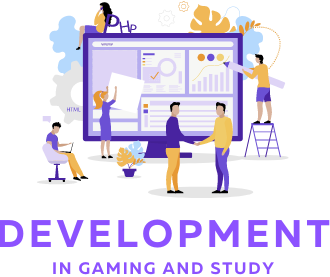Introduction: In the age of digital connectivity, online gaming has emerged as a cornerstone of modern entertainment, offering players from diverse backgrounds the opportunity to immerse themselves in virtual worlds, embark on epic quests, and connect with others in real-time. This article delves into the expansive and dynamic universe of online games, examining their evolution, impact, and enduring appeal in today’s society.
The Evolution of Online Gaming: The roots of online gaming can be traced back to the early days of computer networking, where text-based adventures and simple multiplayer games laid the foundation for what would become a thriving industry. As technology advanced, so did the complexity and scope of online gaming experiences. The advent of broadband internet and powerful gaming platforms paved the way for massively multiplayer online games (MMOs) such as Ultima Online and EverQuest, which captivated players with their expansive virtual worlds and social interactions.
In recent years, the rise of mobile gaming has further democratized access to online games, allowing players to connect and play on the go. Casual titles like Among Us and Fall Guys have gained popularity among players of all ages, while esports competitions and livestreaming platforms have transformed gaming into a global spectator sport with millions of viewers tuning in to watch their favorite players and teams compete.
The Social Fabric of Online Gaming: One of the defining features of online gaming is its ability to foster social interaction and community building in the digital realm. Online games provide players with a platform to connect, collaborate, and compete with others from around the world, regardless of geographical barriers. Whether teaming up with friends in cooperative missions or facing off against rivals in competitive matches, online gaming offers a sense of camaraderie and shared experiences that transcend physical boundaries.
Esports has emerged as a major driving force in the online gaming industry, with professional players competing in high-stakes tournaments and leagues watched by millions of viewers worldwide. The rise of streaming platforms like Twitch and YouTube has further amplified the reach and influence of esports, turning gaming into a mainstream form of entertainment with its own celebrities, personalities, and fan culture.
Challenges and Opportunities: While online gaming offers numerous benefits and opportunities for social interaction and entertainment, it also presents challenges and concerns that must be addressed. Issues such as gaming addiction, cyberbullying, and online harassment are prevalent in online gaming communities, underscoring the need for responsible gaming practices and community moderation efforts.
Moreover, the monetization of online games through microtransactions and loot boxes has raised questions about fairness, transparency, and consumer rights. Developers and industry stakeholders are exploring new approaches to monetization and player engagement that prioritize player satisfaction, fairness, and long-term sustainability.
Looking Ahead: As technology continues Mabukwin Slot to evolve, the future of online gaming holds immense potential for innovation and growth. Virtual reality (VR) and augmented reality (AR) technologies are poised to revolutionize the gaming experience, offering new levels of immersion, interactivity, and realism. The integration of blockchain technology and decentralized platforms could enable new models of ownership, governance, and monetization in online gaming, empowering players with greater control and autonomy over their gaming experiences.
Conclusion: In conclusion, online gaming has become an integral part of modern culture, connecting players from around the world in shared experiences and virtual adventures. From the early days of text-based adventures to the immersive virtual worlds of today, online gaming continues to evolve and expand, offering new opportunities for social interaction, entertainment, and creativity. As we look to the future, it is essential to embrace the potential of online gaming while addressing the challenges it presents, ensuring that it remains a welcoming, inclusive, and enjoyable experience for players of all backgrounds and interests.
